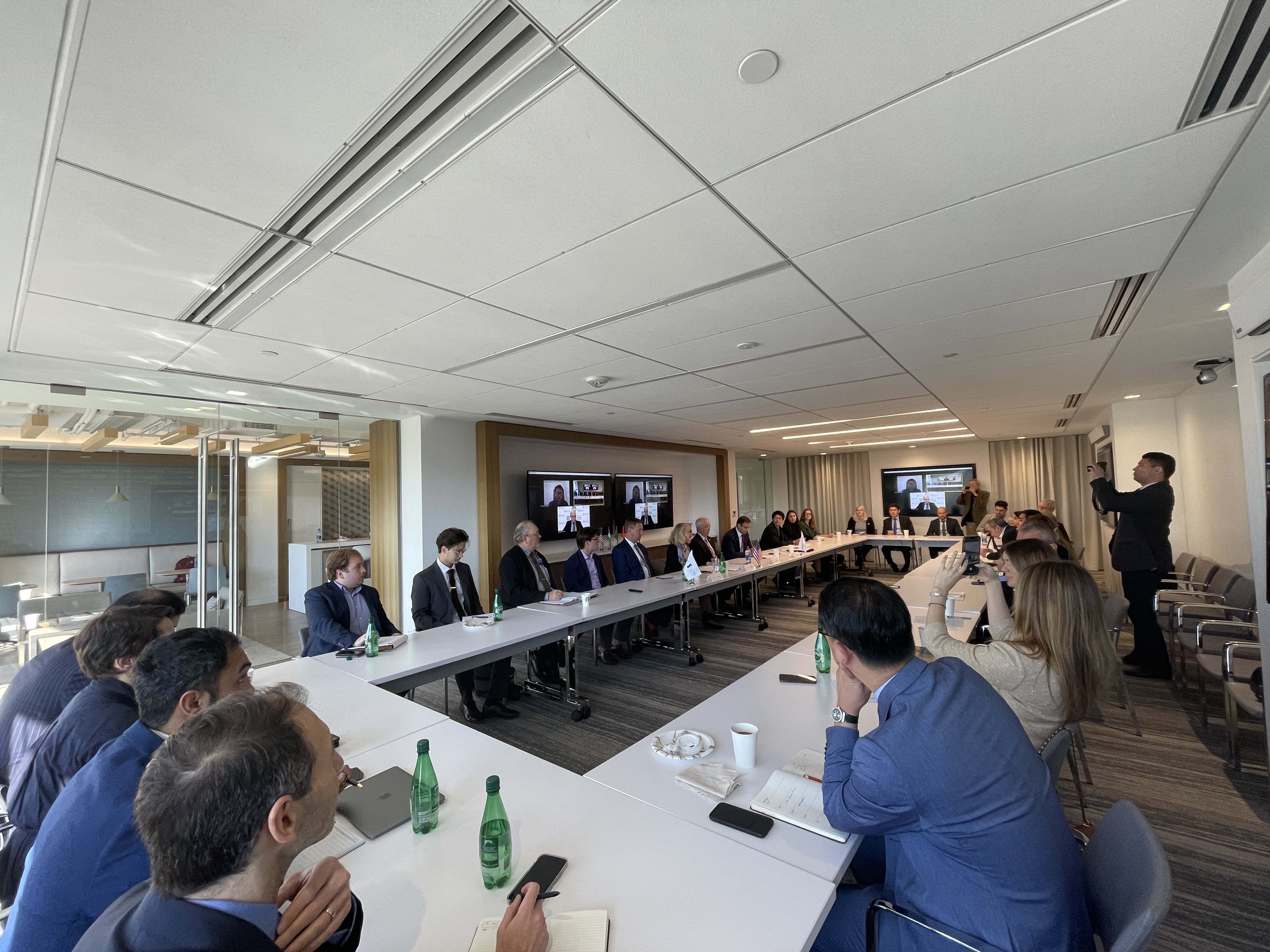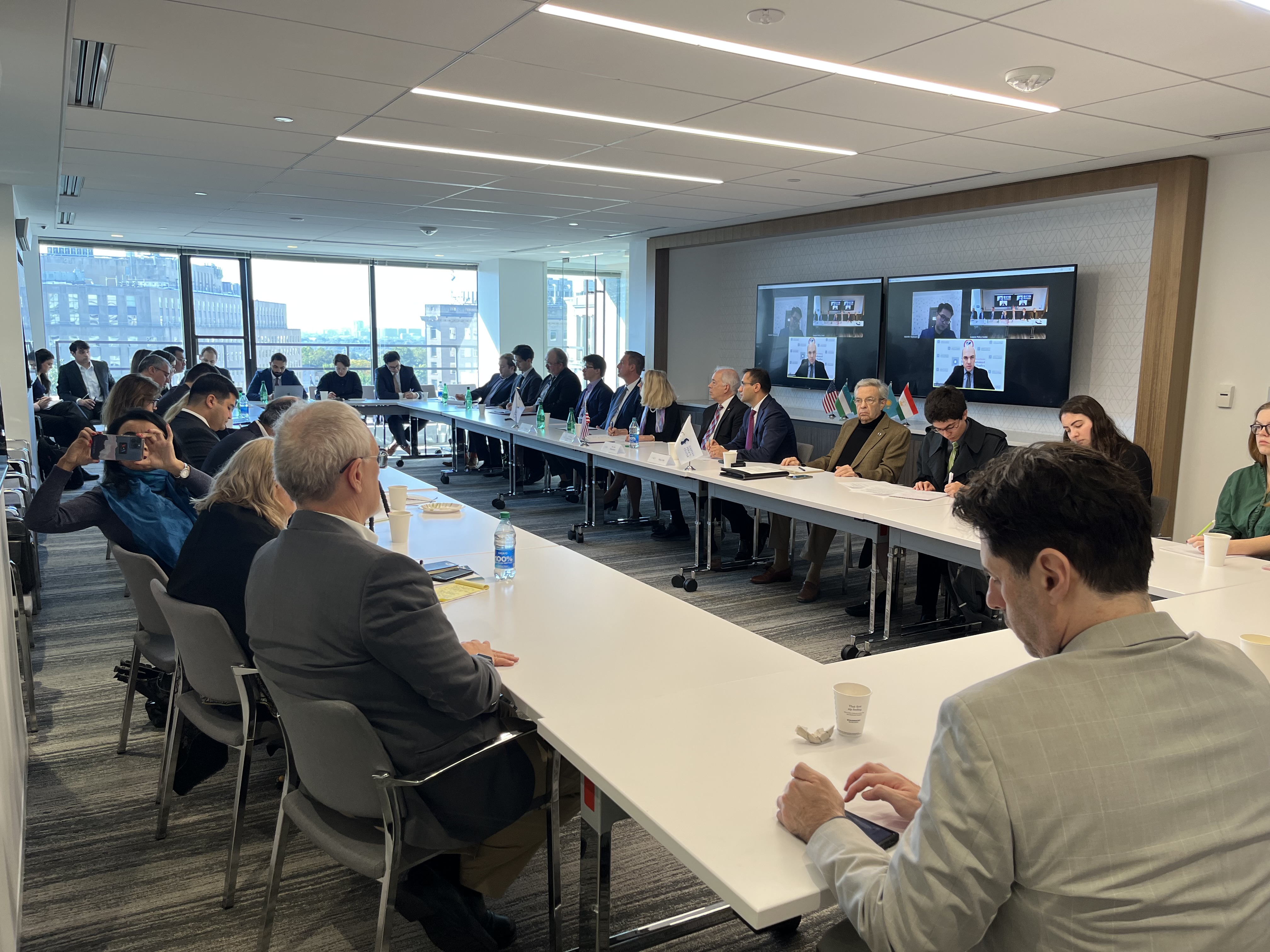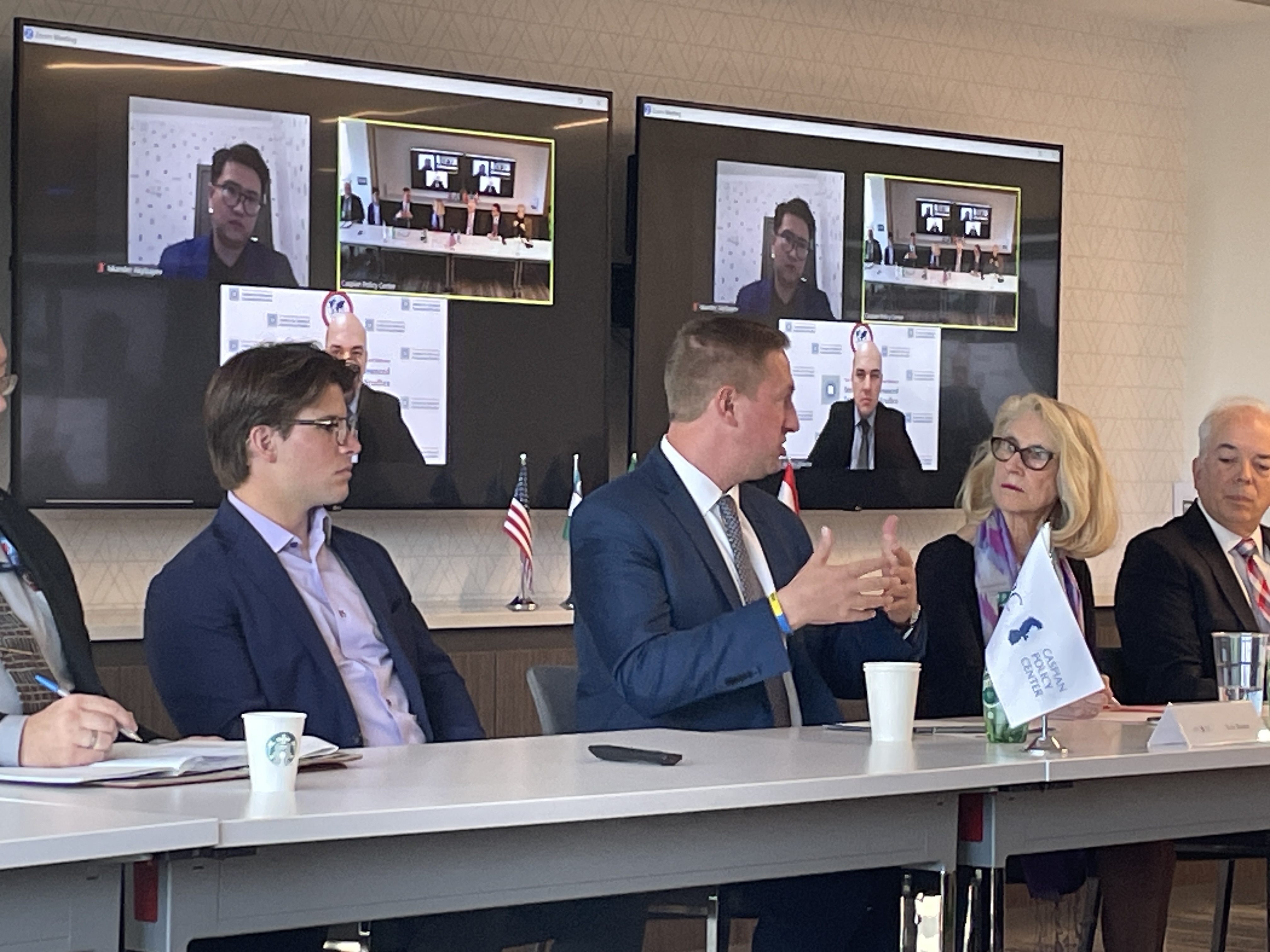Biden’s First Meeting with the C5+1: Where We Can Go From Here
Recent Articles
Author: Caspian Policy Center
10/19/2023
OCTOBER 19, WASHINGTON, D.C.- Four regional experts agreed today that the September C5+1 meeting between US President Biden and the Presidents of Central Asia was a historic event but that more needs to be done to deepen cooperation, during discussions hosted by the Caspian Policy Center. The panel, which was moderated by CPC Board Member, Dr. Marsha McGraw Olive, recognized that there are a number of challenges and opportunities ahead for the region as it takes the next steps. The experts took a deeper look at the significance of the C5+1 meeting, plans for deepening cooperation with the region, and unmet areas of need.
Eric Hontz, the Director of the Center for Accountable Investment at the Center for International Private Enterprise (CIPE), stated, “Any attention is good attention for the region. With all the negative news about the world, with war and conflict, the C5+1 brought a breath of positivity to the world... Any format where we're moving beyond security interests, to a well-rounded relationship with Central Asia, I think is a positive for both the United States and for the region itself.”
“The C5+1 framework was very timely and effective at a time of unpredictable geopolitical realities,” said Dr. Iskander Akylbayev, the Chief Research Fellow at the Institute for Strategic Studies under the President of Kazakhstan. Commenting on the timing of the C5+1 meeting, he added, “We are building the partnership between the United States and Central Asia in a time of mixed realities...[where] technology can be one of the key drivers for broader cooperation and can certainly diversify our relations and the image of Central Asia.”
“There has been a long process of engagement between the United States and the region that has built over time,” noted Dr. Eric Rudenshiold, a senior fellow at the Caspian Policy Center, as he commented on the current state of U.S.-Central Asian relations. However, he pointed out that, “This region (Central Asia) is still poorly connected among themselves, though these ties are growing and building, and the C5+1 process has helped speed along the needed element of engagement.”
Dr. Rudenshiold pointed to several specific areas of mutual interest between the region and the United States: “Now particularly, given the way geopolitics currently are, the most promising area is across the Middle Corridor that connects Central Asia to the Caucasus and onward to Europe... If Central Asia is able to rise to this occasion, we can see the region become capable of trading north, east, south, west, and becoming a trading hub.”
Ambassador (ret.) Richard E. Hoagland, an Advisory Board Member at the Caspian Policy Center, emphasized the importance of the global tour of C5+1 meetings: “What we saw during the same time that President Joe Biden was meeting with the [Central Asian] leaders in New York was that the leaders themselves once again met in Dushanbe for another meeting. What was highly significant about that particular meeting in Dushanbe was that they invited the leader of Azerbaijan. Now, they're looking across the Caspian. So, if we look at the region, the larger Caspian region, we have not only Central Asia, but we have the South Caucasus. And they're only now learning to work together.”
“We've seen meetings between President of Uzbekistan and the President of Azerbaijan, we've seen engagement between Kazakhstan and Azerbaijan, and we see increased engagement across the Caspian... We're seeing increased interest from all of these countries in finding ways to do business that they haven't done before,” Dr. Rudenshiold added.
“Central Asian connectivity is limited, and now is the time to find new trade routes,” said Dr. Akram Umarov, the Deputy Director of the Institute for Advanced International Studies at the University of World Economy and Diplomacy in Uzbekistan. To help mitigate this limitation, he said, “It’s important to cooperate on implementing projects like the Middle Corridor and the Trans-Afghanistan railway project, which will improve the connectivity of the region and give a lot of opportunities to regional countries.”
All speakers pointed out that the economic potential of Central Asia is there, but there are certain obstacles that must first be overcome. “Security is important, but I think now we need to change our mindset and first focus [instead] on increasing our economic exchange, on increasing trade and energy connectivity cooperation,” added Dr. Umarov.
“There is a global trend in growing fault lines in global affairs,” noted Dr. Akylbayev. “If we want smoother, faster business operations with the US, we need to update our standards in conducting business. We need to look at the possible errors, fix our mistakes, and apply the recommendations.”
Hontz described the importance of economic sovereignty, highlighting that “The more Central Asia can work together to create a cohesive economic bloc, the freer they’re going to be in their foreign policy objectives.”
Dr. Rudenshiold also agreed on the region’s need for economic independence: “Helping the region build economic sovereignty is absolutely critical when looking at building connectivity across the region. Through sovereignty, each of these five countries can work together to support each other and individually grow their economies... The United States, I firmly believe, sees this region as one which, when they work together are much stronger, and should be able to actually negotiate on their own terms,” he continued.
For the United States, “The important point is to continue focusing on the region, recognizing that [it] is ...blooming and has come of age. Now is the time that this crossroads is reestablished,” Dr. Rudenshiold added.
When asked about Central Asia’s current relations with Russia and China, the speakers emphasized the importance of the region maintaining its multi-vectored foreign policy, despite the external pressures. “You always do business with your neighbors,” said Rudenshiold. “Of course, they must trade with Russia and China, you always trade with your neighbors...it's normal. The issue, however, going back to economic sovereignty, is for the Central Asians to be able to trade with...the rest of the world on their own terms, not terms dictated to them. And that's what economic sovereignty is.”
“The neighboring environment is not very favorable to the development of the region. But, it is clear that we [Central Asia] cannot change our geography. So, we need to work with reality in this circumstance. We need to be as pragmatic as possible and work more closely on improving trade and economic exchange with our neighboring countries,” said Dr. Umarov.
“We in Central Asia, are not uniting against something, but we are uniting for more cooperation. I think this is a positive agenda that is not seen in many other regions around the world,” Dr. Akylbayev stated. “The climate change initiatives from Central Asia and from the United States should be put on the table together. This should be a priority,” Akylbayev also added.
“We are in a new world, where nations are using economic policy to influence, and in some cases, undermine sovereignty. So, if you are completely reliant on one nation, or another, for a specific aspect of your supply chain, that puts your security interests at risk. I think that given the two large neighbors in the region, it's wise to engage in a bit of economic security within Central Asia,” said Mr. Hontz.
Dr. Rudenshiold added, “President Xi, just a couple of days ago essentially almost implied conditionality for China's continued BRI assistance if the US continued to be engaged in the region,” whereas “we [the United States] doesn't see conditionality as the means for the way to engage with countries.”
“I think Central Asia, and its multi-sectoral policy, takes good advantage of all the resources that are available... This region has had 32 years of being able to balance interests in the region. And we in the US, I believe, intend to stay heavily engaged with this region as much as we are asked,” Dr. Rudenshiold concluded.
Dr. Marsha McGraw Olive, a board member of the Caspian Policy Center, moderated the event.


